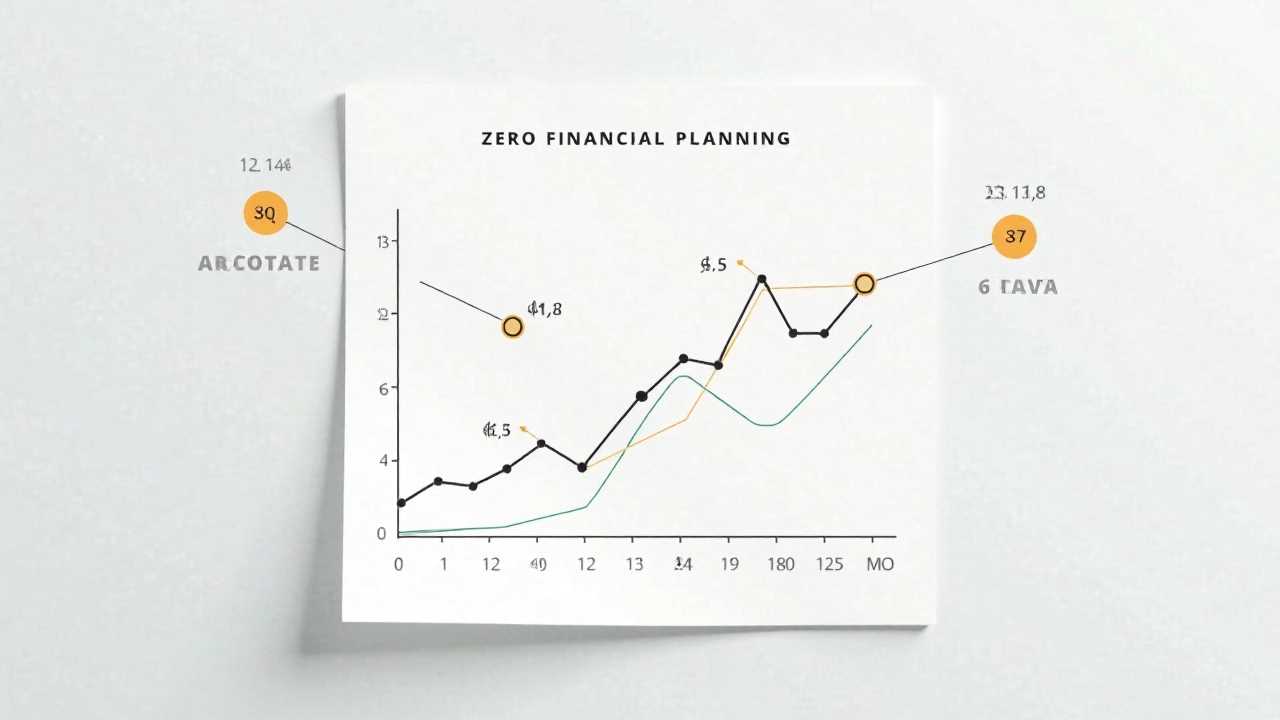
Understanding Zero-Based Budgeting Techniques
Zero-based budgeting (ZBB) is a powerful financial management strategy that requires every dollar of income to be allocated to specific expenses, savings, or debt repayment. This technique starts from a "zero base," meaning that every expense must be justified for each new period, typically monthly or annually. By adopting zero-based budgeting techniques, we can achieve effective financial planning that not only helps in tracking expenses but also promotes a disciplined approach to managing finances.
The Importance of Financial Planning
Effective financial planning is the cornerstone of achieving financial freedom. It involves setting financial goals, understanding income sources, and creating a roadmap to reach those goals. With zero-based budgeting, we can ensure that every dollar is working towards our financial objectives. This method encourages us to prioritize our spending based on needs rather than wants, leading to more informed decisions about where our money goes.
Expense Tracking: The Heart of Zero-Based Budgeting
Expense tracking is an integral part of zero-based budgeting. By meticulously recording every expense, we gain insight into our spending habits. This practice allows us to identify areas where we can cut back and reallocate funds towards savings or debt reduction. Utilizing tools such as budgeting apps or spreadsheets can streamline this process, making it easier to stay on top of our financial commitments.
Implementing a Savings Strategy
A robust savings strategy is essential for financial security. With zero-based budgeting, we can allocate a specific portion of our income to savings each month. This proactive approach ensures that we are not only covering our expenses but also building a safety net for emergencies or future investments. Whether it’s for a vacation, a new car, or retirement, having a clear savings goal helps us stay motivated and focused.
Effective Budget Allocation
Budget allocation is a critical component of zero-based budgeting techniques. By assigning every dollar to a specific category—such as housing, transportation, groceries, and entertainment—we create a comprehensive view of our financial landscape. This detailed allocation helps us understand where our money is going and allows us to make adjustments as necessary. For instance, if we notice that we are overspending on dining out, we can reallocate funds from that category to savings or debt repayment.
Strategies for Debt Reduction
Debt can be a significant barrier to achieving financial freedom. Zero-based budgeting provides a structured approach to debt reduction. By allocating funds specifically for debt repayment, we can systematically pay down balances and reduce interest costs. Prioritizing high-interest debt first can accelerate our journey towards being debt-free. Additionally, we can explore options like debt consolidation or negotiation with creditors to further enhance our debt reduction strategy.
Mastering Cash Flow Management
Effective cash flow management is vital for maintaining financial stability. Zero-based budgeting allows us to anticipate income and expenses, ensuring that we have enough cash flow to cover our obligations. By regularly reviewing our budget and adjusting it based on changes in income or expenses, we can maintain a healthy cash flow that supports our financial goals. This proactive management helps prevent overspending and encourages us to live within our means.
Creating a Zero-Based Budget: Step-by-Step Guide
1. List All Income Sources: Begin by identifying all sources of income, including salaries, freelance work, and any side hustles.
2. Identify Fixed and Variable Expenses: Categorize your expenses into fixed (rent, utilities) and variable (groceries, entertainment) to understand your spending patterns.
3. Allocate Funds: Assign every dollar of income to a specific expense, savings, or debt repayment category. Ensure that your total expenses equal your total income.
4. Track Your Spending: Use budgeting tools to monitor your expenses throughout the month. Adjust your budget as necessary to stay on track.
5. Review and Adjust: At the end of each month, review your budget. Analyze what worked and what didn’t, and make adjustments for the next month.
Benefits of Zero-Based Budgeting Techniques
Adopting zero-based budgeting techniques offers several benefits:
- Increased Awareness: By tracking every dollar, we become more aware of our spending habits and can make informed decisions.
- Goal-Oriented: This method aligns our spending with our financial goals, ensuring that we prioritize what truly matters.
- Flexibility: Zero-based budgeting allows for adjustments based on changing circumstances, making it a versatile financial strategy.
- Enhanced Savings: By allocating funds for savings, we can build a financial cushion that provides security and peace of mind.
Achieving Financial Freedom
Mastering zero-based budgeting techniques is a powerful step towards achieving financial freedom. By focusing on effective financial planning, diligent expense tracking, strategic savings, and disciplined debt reduction, we can take control of our finances and work towards a more secure future. Embracing these principles not only empowers us to make better financial decisions but also paves the way for lasting financial success.
 Network marketingWork from home jobsEntrepreneurshipAffiliate marketingFinancial freedomPrivacy PolicyTerms And Conditions
Network marketingWork from home jobsEntrepreneurshipAffiliate marketingFinancial freedomPrivacy PolicyTerms And Conditions
